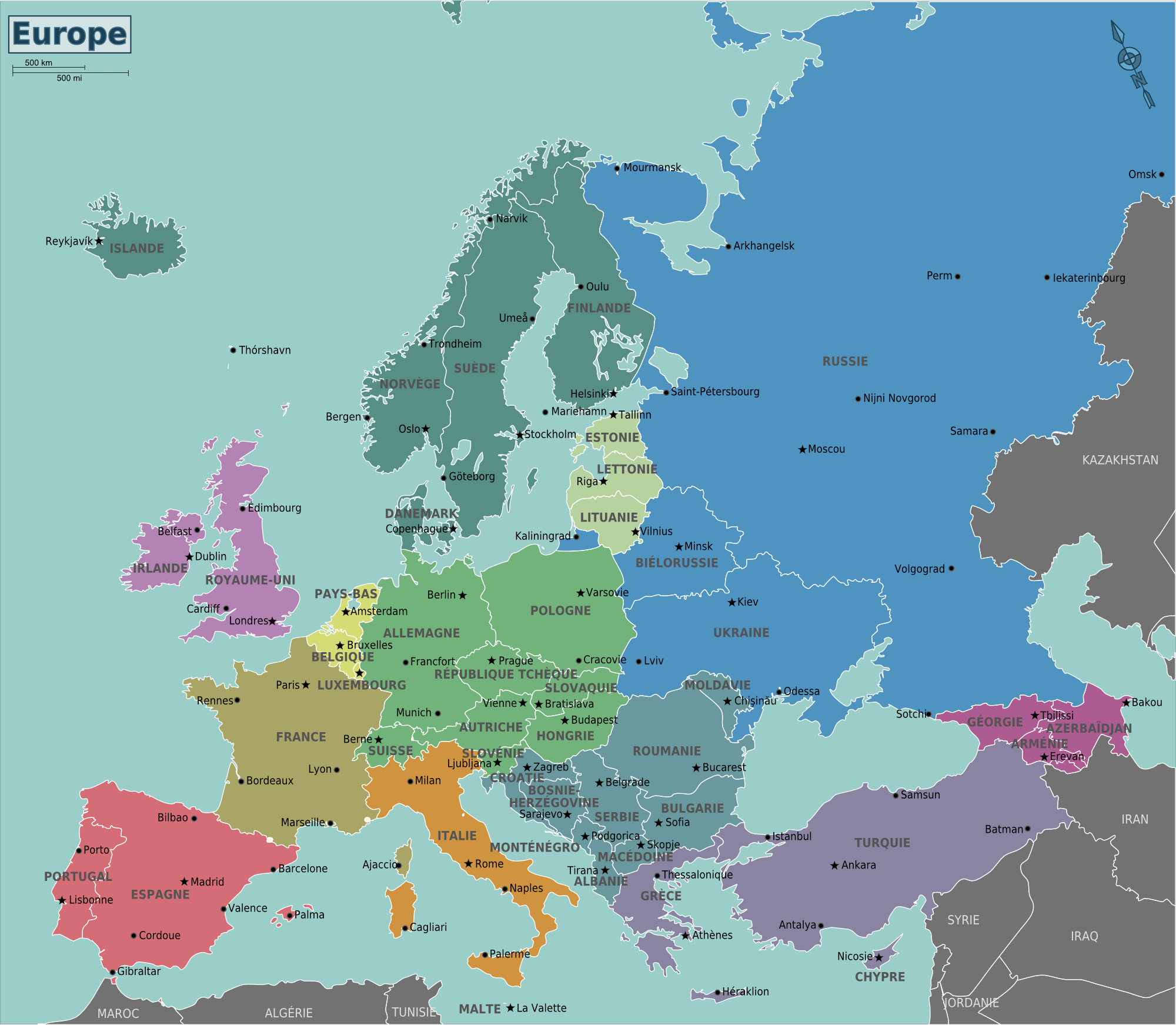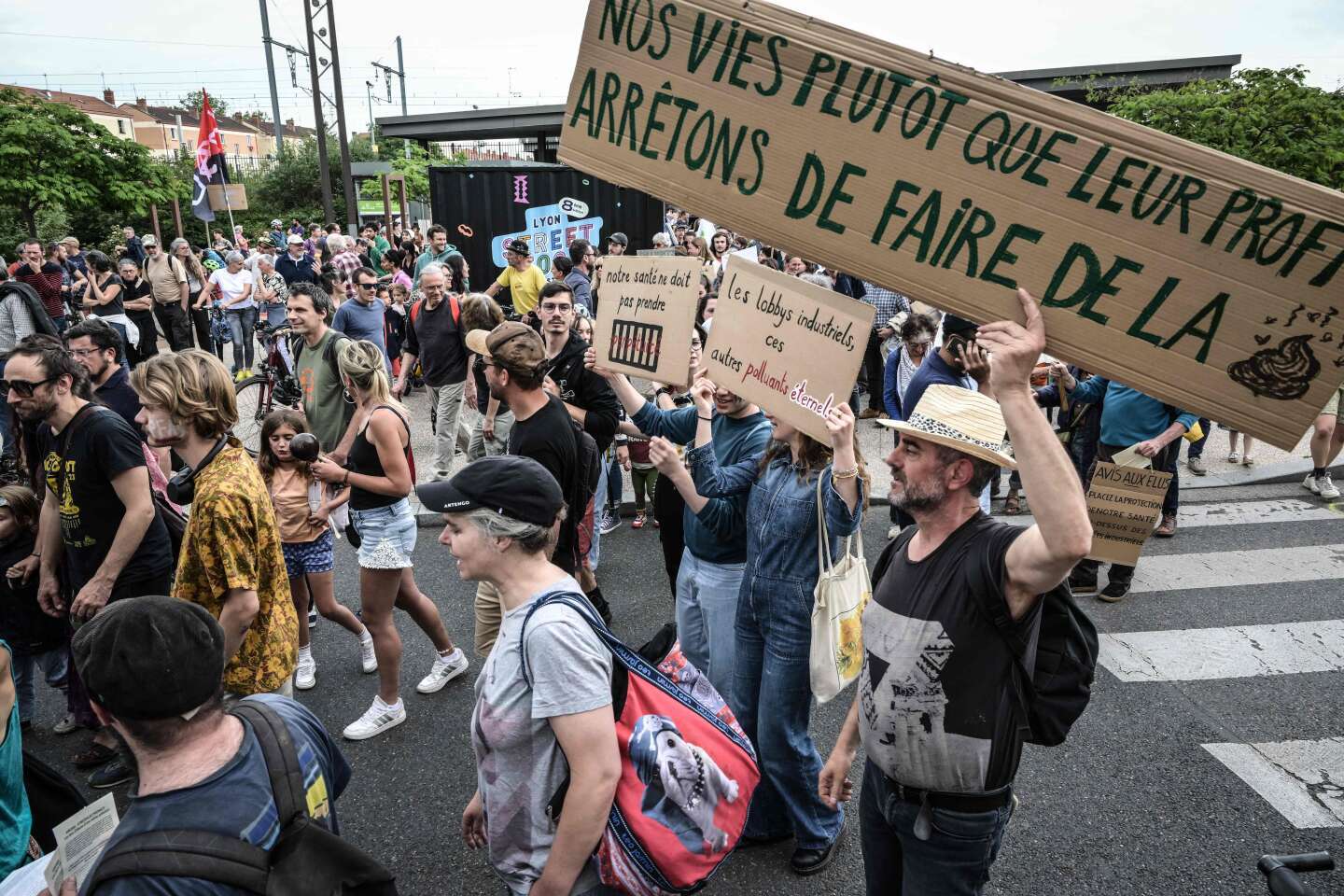Des fois j’oublie des , d’auters fois je mélnage leurs lettres.
- 82 Posts
- 7 Comments

 171·6 months ago
171·6 months agoFormer US President Donald Trump said: ‘What do you have to lose? Take it.’
As a proud and patriotic French, I can’t let the murican brag about their (former) President without bragging about our former and current President whom happen to be a very good epidemiologist :
Today his profile rose even higher, as French President Emmanuel Macron traveled to Marseille to meet Raoult, a hospital director and researcher who led the two trials. Macron did not comment after the meeting, but the rendezvous, initiated by Macron, was a clear sign of Raoult’s newfound political clout. Jean-Paul Hamon, president of the Federation of Doctors of France, one of many scientists and doctors critical of the meeting, called it “showbiz politics.”
A survey released by French polling institute IFOP on 6 April revealed that 59% of the French population believes chloroquine is effective against the new coronavirus. Confidence in the drugs is higher on the far right and far left, and reached 80% among sympathizers of the “yellow vest” movement that staged massive protests against Macron’s economic policy in 2018 and 2019. Support is also very high, at 74%, in the Marseille region.
Karine Lacombe, head of infectious diseases at the Saint Antoine Hospital in Paris, has said on French TV that she and her team have received repeated “physical threats” for refusing to prescribe chloroquine; she said she has also seen many falsified prescriptions for the drug. Other doctors have reported similar experiences. The pressure comes on top of the stress caused by shortages of protective equipment, diagnostic tests, and medical staff.

In my country (France) it’s mandatory to have one…

It’s happening here (France) as well. Insurer have cancelled their contract with some cities because it would be to expansive to do what they are paid for…
After dealing with floods, landslides, fires… in recent months, the nightmare has taken another turn for some mayors, many of them in the Pyrénées-Orientales region, who are seeing their insurers suddenly withdraw from their contracts. Faced with unbearable increases or outright cancellations from one day to the next, a veritable marathon has begun for the elected representatives of small communes, who are sweating to find a new insurance company.
It’s been around two years since the evil began to creep into municipal councils in the département, as it has in many other parts of France. Some elected representatives no longer hide their fear at the thought of opening a letter from their insurance company. End of contract or not, the bad news can come at any time. There are two phenomena," says Edmond Jorda, president of the Catalan branch of the Association des Maires de France. Either a staggering rise in membership fees. Or the insurance company simply pulls out." On the morning of Monday November 6, the elected representative met with the president of the AMF Occitanie on this subject. “On November 22, this will be the theme of a workshop at the Congress of Mayors in Paris,” he informs, “the title of which will be ‘Does my commune have an insurer?’”
In fact, the scale of the problem is such that on October 25 the government launched a mission on “the insurability of local authorities”. It will have the difficult task of determining how to get local authorities, already overwhelmed by the vagaries of the weather, out of the rut.
Unsuccessful call for tenders
A number of communes in the Pyrénées-Orientales region, particularly on the coast and in the Agly and Têt valleys, have recently received notices of increased premiums, or worse. “Some people have had their insurance withdrawn mid-contract”, says Edmond Jorda, although he stresses that this is legal. This is how the mayor of his commune of Sainte-Marie currently finds himself without “ordinary sickness” insurance for his municipal employees. “There are many of us in this situation, and our employees are no longer covered by our insurance except for long-term sick leave, long-term illness or maternity leave.” Forcing the communes to compensate out of their own funds.
Not far away, in Torreilles, the municipality is under a double sword of Damocles. "Mayor Marc Médina laments, "Our insurer cancelled our property insurance policy before the summer, on the grounds that we are in a flood zone. The problem is that the call for tenders immediately launched by the commune was unsuccessful. “It’s not uncommon for companies not even to reply to our letters,” says a disappointed Edmond Jorda. “As soon as we’re on a risk prevention plan or listed on a natural disaster decree, the insurers either impose prohibitive rates on us, or don’t respond to our requests.”
In Torreilles, “we will no longer have insurance as of next January”, warns Marc Médina. But that’s not all: on the same date, the second insurance company covering the commune and its 70 or so agents for supplementary health insurance will also lapse. “We had a firm that insured us. But in July 2022, they announced that they would be cancelling the contract on January 31. We renegotiated a small increase in the deductible and the contract was maintained. A few weeks ago, however, we received a reminder that our contract would be terminated again on December 31, 2023.”
200% increase in municipal contribution
The mayor does not understand this decision. In his view, it was sick leave, which was too high for the insurer’s liking, that had justified this “readjustment”. But since then, he insists, the situation has largely improved. He thought he was safe from another surprise. The only way out for him was a 200% increase in the municipal premium. In other words, the contract would rise from €47,000 to €147,000 for the commune of 3,800 inhabitants.
“We can’t afford not to have insurance,” insists Marc Médina, who has called in a specialist consultant to find an insurer willing to take on his commune. Because “it will be impossible for the commune, in the event of a glitch, to take on the financial risk.” “If, for example, a man were to injure himself while jogging on a road and need care for years, the taxpayers would have to pay ad vitam aeternam,” adds his neighbor from Sainte-Marie. “But it’s the insurer’s job to take risks,” points out the mayor of Torreilles.
The two councillors then turned their attention to the State: “We should set up a fund to protect local authorities,” suggested Marc Médina. In essence, this is what Edmond Jorda intends to demand, arguing: "The State must at least provide an offer.
“Reinsurers see risks multiplying and passing them on to insurance companies”.
SMACL, an insurance company specializing in local authorities, refers to a domino effect almost “beyond its control”. Its press office, contacted on Monday, confirms that local authorities all over France are increasingly receiving “notices of payment due in the course of the year”. The explanation for this phenomenon? “We take into account the sinister nature of the situation at national level. And it so happens that, whereas 5 or 10 years ago, the risks of natural phenomena occurring were one-off or rare, today they are becoming ‘systemic’. The recurrence of such events is increasingly costly to indemnify, and the very large sums involved mean that insurers are obliged to reinsure with very large multinationals, often abroad.” The bill includes the weather, of course, but also riots, which are on the increase, and their attendant material damage.
All this is mutualized and passed on. In the end, explains SMACL, “insurers have no choice but to tighten up their conditions, either by reviewing ceilings or increasing deductibles.”
Here too, the company has initiated discussions with the government. The aim: “to make the regulations evolve.” To put it plainly: “Perhaps the State could play a greater role in this type of situation, so that elected representatives are not left without a solution. Because,” SMACL points out lucidly, "claims are not going to stop tomorrow.
“Insurers are becoming more and more cautious, so we have to negotiate by mutual agreement”.
A former insurance agent in Perpignan, Dominique Boisserie is a consultant in public procurement and insurance for local authorities. Some forty communes in the Pyrénées-Orientales region have called on his services over the past two years, including Torreilles, for whom he is currently seeking a new insurance policy. His asset, says the professional, is the Groupement d’Intérêt Economique to which he belongs, which gives him a certain credibility in his dealings. “Over the past few years, a number of natural disasters have had a major impact on certain towns on the Catalan coast or near the Agly or Têt rivers. But they are also paying for the riots in other French towns. All our customers are feeling the pinch. And insurers are becoming increasingly cautious.”
He explains that SMACL has had financial difficulties and recently merged with MAIF, which withdrew from the market, driving down the offer. Another insurance group with a strong presence in the local authority market, according to the specialist, has become “extremely selective about the risks it underwrites, and in particular has decided to take on far fewer local authorities.” His solution today is to negotiate by mutual agreement. Discussions are tough, but at the price of higher deductibles in particular, they have a chance of succeeding.
Translated with www.DeepL.com/Translator (free version)

 3·8 months ago
3·8 months agoor focus on anything other than getting the rich what they want at everyone else’s expense.
I guess that means they are able to do a good work, it’s just that their good work is not about solving global problems.

Well a reference is given to back up this affirmation : Extreme weather and climate events likely to drive increase in gender-based violence
As the climate crisis leads to more intense and more frequent extreme weather and climate-related events, this in turn risks increasing the amount of gender-based violence experienced by women, girls, and sexual and gender minorities, say researchers.
In a study published in The Lancet Planetary Health, a team led by a researcher at the University of Cambridge analysed current scientific literature and found that the evidence paints a bleak picture for the future as extreme events drive economic instability, food insecurity, and mental stress, and disrupt infrastructure and exacerbate gender inequality.
Between 2000 and 2019, floods, droughts, and storms alone affected nearly 4 billion people worldwide, costing over 300,000 lives. The occurrences of these extreme events represent a drastic change, with the frequency of floods increasing by 134%, storms by 40%, and droughts by 29% over the past two decades. These figures are expected to rise further as climate change progresses.
Extreme weather and climate events have been seen to increase gender-based violence, due to socioeconomic instability, structural power inequalities, health-care inaccessibility, resource scarcity and breakdowns in safety and law enforcement, among other reasons. This violence can lead to long-term consequences including physical injury, unwanted pregnancy, exposure to HIV or other sexually transmitted infections, fertility problems, internalised stigma, mental health conditions, and ramifications for children.
To better understand the relationship between extreme events and gender-based violence, researchers carried out a systematic review of existing literature in this area. This approach allows them to bring together existing – and sometimes contradictory or under-powered – studies to provide more robust conclusions.
The team identified 41 studies that explored several types of extreme events, such as storms, floods, droughts, heatwaves, and wildfires, alongside gender-based violence, such as sexual violence and harassment, physical violence, ‘witch’ killing, early or forced marriage, and emotional violence. The studies covered countries on all six of the major continents and all but one focused on cisgender women and girls.
The researchers found evidence that gender-based violence appears to be exacerbated by extreme weather and climate events, driven by factors such as economic shock, social instability, enabling environments, and stress.
According to the studies, perpetrators of violence ranged from partners and family members, through to religious leaders, relief workers and government officials. The relationship between extreme events and gender-based violence can be expected to vary across settings due to differences in social gender norms, tradition, vulnerability, exposure, adaptive capacity, available reporting mechanisms, and legal responses. However, the experience of gender-based violence during and after extreme events seems to be a shared experience in most contexts studied, suggesting that amplification of this type of violence is not constrained geographically.
“Extreme events don’t themselves cause gender-based violence, but rather they exacerbate the drivers of violence or create environments that enable this type of behaviour,” said Kim van Daalen, a Gates Cambridge Scholar at the Department of Public Health and Primary Care, University of Cambridge.
“At the root of this behaviour are systematic social and patriarchal structures that enable and normalise such violence. Existing social roles and norms, combined with inequalities leading to marginalisation, discrimination, and dispossession make women, girls, and sexual and gender minorities disproportionately vulnerable to the adverse impacts of extreme events.”
Experiencing gender-based violence can also further increase vulnerability. When faced with the likelihood of experiencing harassment or sexual violence in relief camps, for example, some women or sexual and gender minorities choose to stay home or return to their homes even before doing so is safe, placing them in additional danger from extreme events and furthering restrict their already limited access to relief resources.
Extreme events could both increase new violence and increase reporting, unmasking existing violence. Living through extreme events led some victims to feel they could no longer endure abuse or to feel less inhibited to report the abuse than before the event. However, the researchers also noted that reporting remains plagued by a number of factors including silencing of victims – particularly in countries where safeguarding a daughter’s and family’s honour and marriageability is important – as well as fears of coming forward, failures of law enforcement, unwillingness to believe victims, and the normalisation of violence.
Van Daalen added: “Disaster management needs to focus on preventing, mitigating, and adapting to drivers of gender-based violence. It’s crucial that it’s informed by the women, girls, and sexual and gender minority populations affected and takes into account local sexual and gender cultures and local norms, traditions, and social attitudes.”
Examples of such interventions include providing post-disaster shelters and relief services – including toilets and bath areas – designed to be exclusively accessed by women, girls, and sexual and gender minorities or providing emergency response teams specifically trained in prevention of gender-based violence.
Likewise, empowerment initiatives for women and sexual and gender minorities that challenge regressive gender norms to reduce vulnerability could bring opportunities to negotiate their circumstances and bring positive change. For example, women’s groups using participatory- learning-action cycles facilitated by local peers have been used to improve reproductive and maternal health by enabling women to identify and prioritise local challenges and solutions. Similar programmes could be adapted and applied in extreme event management to empower women as decision makers in local communities.
…
Case studies
Flooding and early marriage in Bangladesh
Studies suggest a link between flooding incidence and early marriage, with spikes in early marriages observed in Bangladesh coinciding with the 1998 and 2004 floods. Next to being viewed as a way to reduce family costs and safeguard marriageability and dignity, these marriages are often less expensive due to flood-induced impoverishment lowering expectations.
One study included an example of the head of a household explaining that the 2013 cyclone had destroyed most of his belongings, leaving him afraid that he would be unable to support his youngest unmarried daughter, who was under 18. Marrying off his daughters was a way of reducing the financial burden on the family.
ReferenceVan Daalen, KR. Extreme events and gender-based violence: a mixed-methods systematic review. Lancet Planetary Health; 14 June 2022; DOI: 10.1016/PIIS2542-5196(22)00088-2

 61·9 months ago
61·9 months agoThis might have an interesting potential yet I am quite sceptical.
Desalination doesn’t just get rid off the salt but also most of the water’s minerals. Lack of minerals in the water used everyday can be harmful for human health and also for agriculture. This poor water can’t provide enough minerals or worst even adsorb the ones from the human body same with the soil. This is why many desalination plants have remineralization process by adding some or reusing minerals extracted from the brine.
If such a system is deployed it would have to address this problem as well as providing solutions to dispose or utilize the brine.
Remineralization of desalinated water: Methods and environmental impact
Israeli Scientists Fear Public Health Risks from Desalinated Seawater











Same for the french police force :
French police say ‘we are at war with vermin’ as they threaten revolt over rioting
United Nations: France must ‘seriously address’ police racism